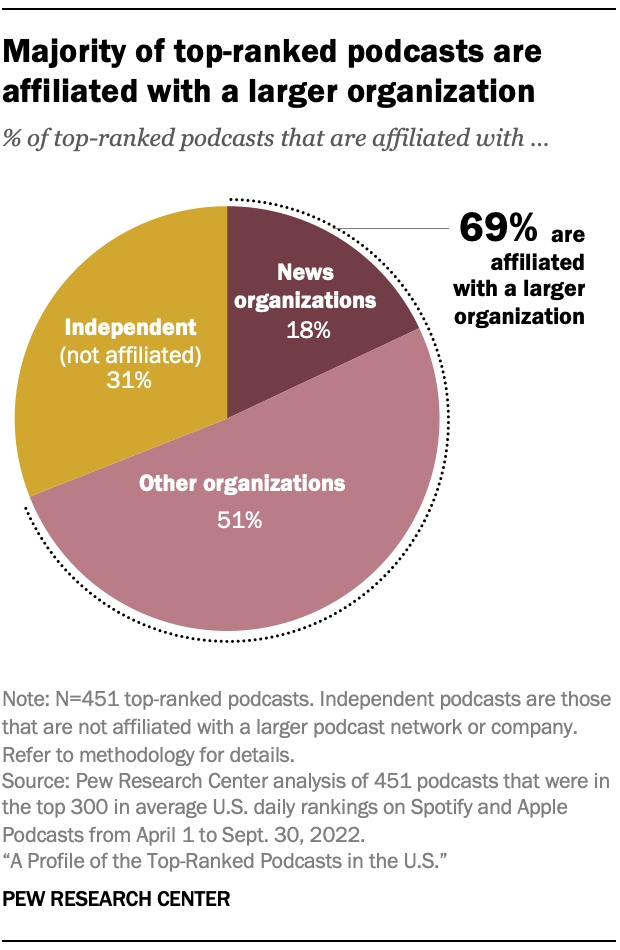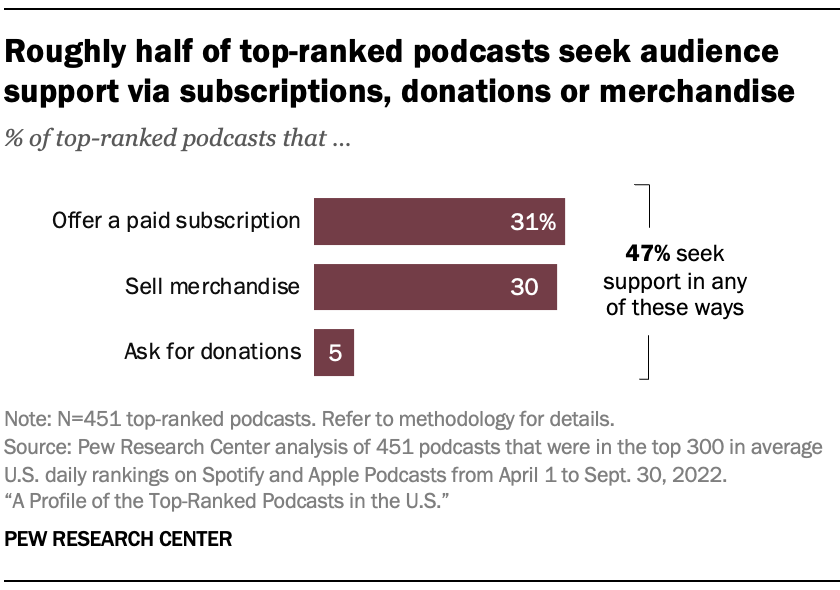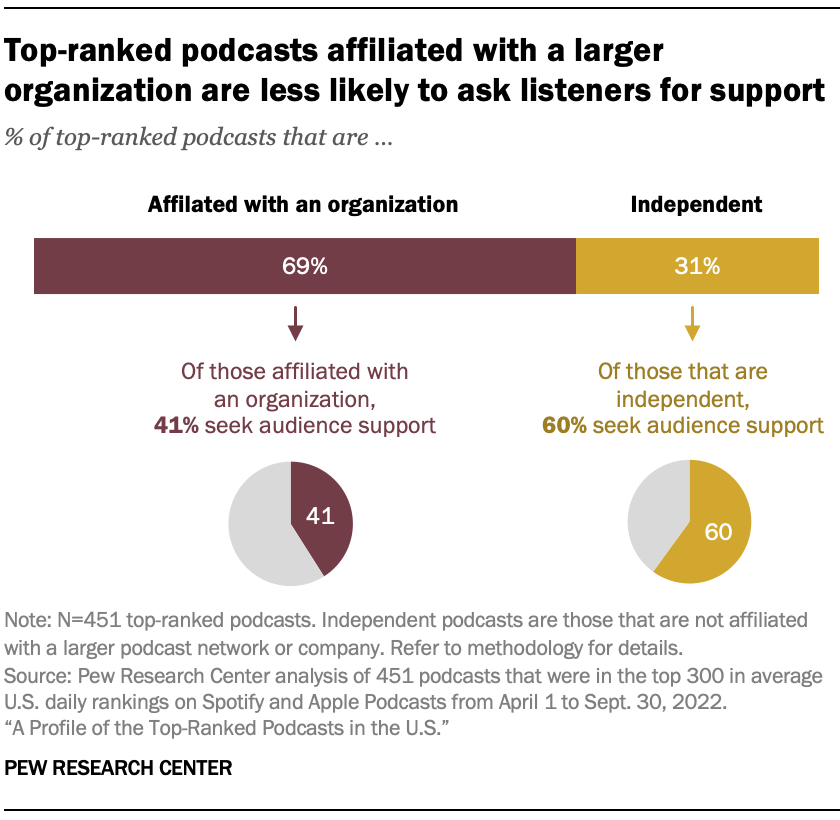
A popular perception of podcasting suggests that anyone can start a podcast, enabling independent voices to reach large audiences. But running a podcast and getting an audience can be both time-consuming and expensive, with costs relating to equipment as well as advertising, guest booking, research and other expenses. Top-ranked podcasts often make money from advertising (although this study did not examine this revenue stream), and many ask their audiences for financial support.
But affiliation with a larger organization – a podcasting network or company or a news organization – can mitigate these costs, though funding levels may be declining. In fact, a majority of top podcasts (69%) are connected to a larger organization that produces and distributes podcasts, including about one-in-five (18%) that are affiliated with news organizations. Some of these are news-focused podcasts like The New York Times’ The Daily and The Daily Wire’s The Ben Shapiro Show, but others are not, such as Making Space with Hoda Kotb from NBC.
About half of all top podcasts (51%) are affiliated with an organization that is not primarily focused on news. Many of these organizations are focused on podcasts and related content, such as Pushkin Industries, Lemonada Media or Barstool Sports. But recent years also have seen a wave of consolidation in the podcast industry, with several podcasts and their parent companies being purchased by larger organizations. For example, Wondery, which publishes dozens of podcasts, was purchased by Amazon in 2020, while Spotify bought The Ringer’s catalog of podcasts the same year. And more traditional audio companies like iHeartMedia also publish several top podcasts.
About a third of top-ranked podcasts (31%) are independent. These include podcasts from relatively unknown hosts, such as Your Own Backyard (which investigates the 1996 disappearance of Kristin Smart), as well as from public figures (e.g., The Megyn Kelly Show).
About half of top-ranked podcasts seek financial support from listeners

About half of top podcasts (47%) seek out audience support, either by offering paid subscriptions, asking for donations or selling merchandise.
Roughly three-in-ten (31%) invite their audience to buy a paid subscription to their podcast, which offers listeners added benefits like early access or bonus episodes. A similar proportion (30%) sell merchandise, such as T-shirts and coffee mugs. Just 5% ask listeners directly for donations.
A recent Pew Research Center survey found that 13% of podcast listeners in the U.S. have paid for a subscription to a podcast, and 12% have bought a podcast’s merchandise.
Independent podcasts are more likely to seek out audience support than those connected to a larger organization

Whether top-ranked podcasts ask listeners for support also varies based on their ownership, with independent podcasts particularly likely to ask for support.
Six-in-ten independent top-ranked podcasts ask listeners for support through paid subscriptions, direct donations or selling merchandise, compared with 41% of podcasts affiliated with a larger organization.
Independent podcasts are about twice as likely to offer a paid subscription as podcasts affiliated with an organization (47% vs. 23%). Similarly, independent podcasts are more likely to sell merchandise, with 42% offering this option to listeners (versus 24% of those with an affiliation).
One-in-ten independent top-ranked podcasts seek donations, versus just 2% of those affiliated with a larger organization.


 VIDEO: Watch the full Pulse on Podcasts event
VIDEO: Watch the full Pulse on Podcasts event